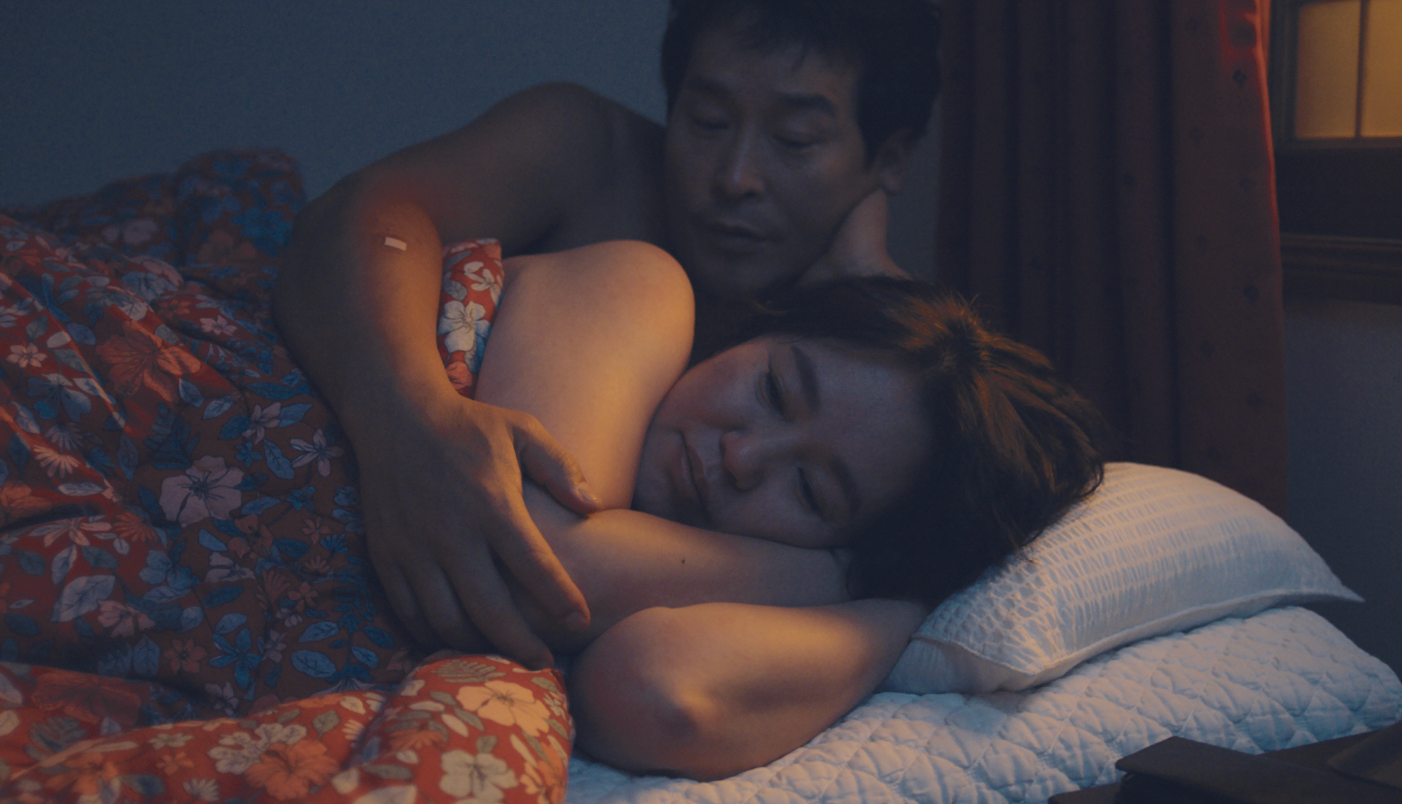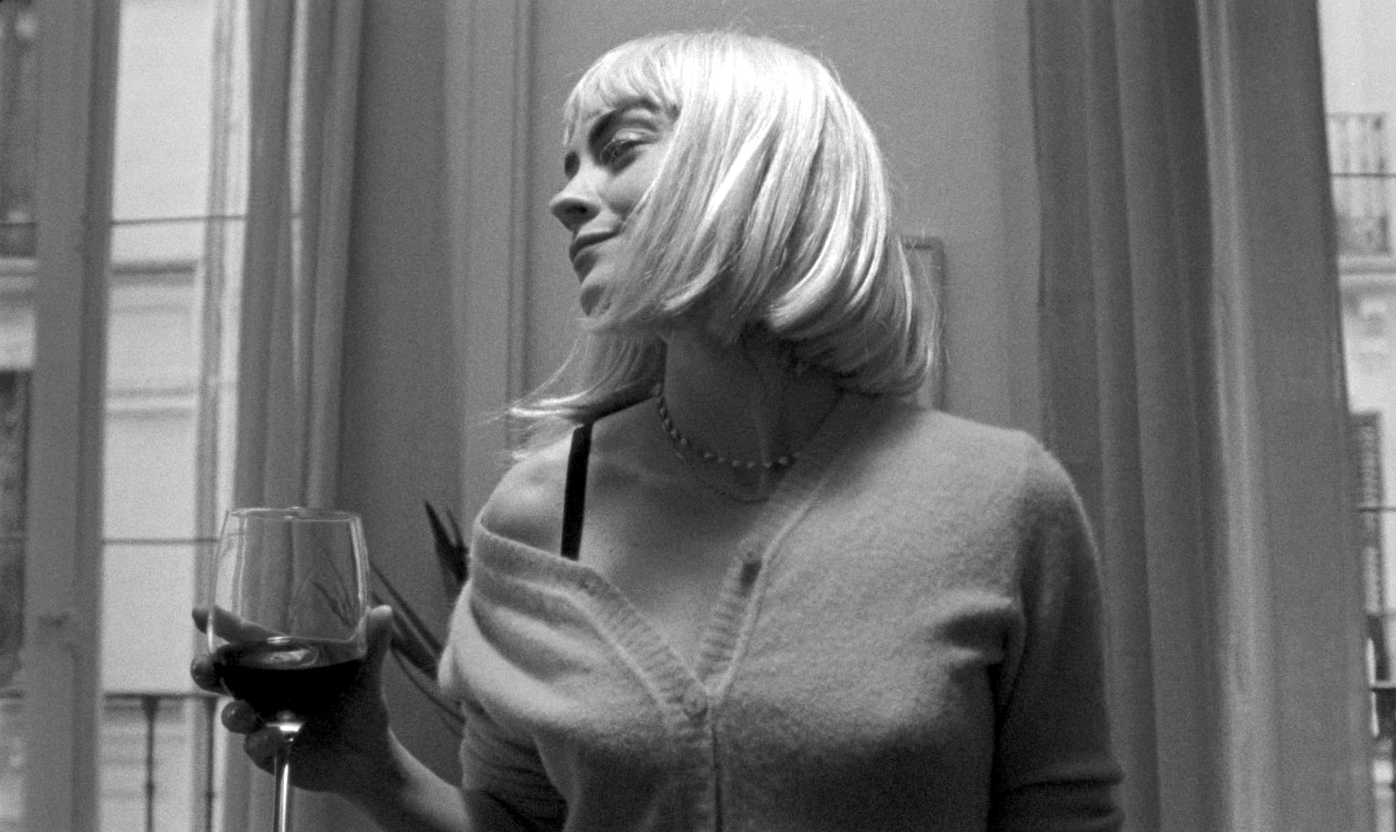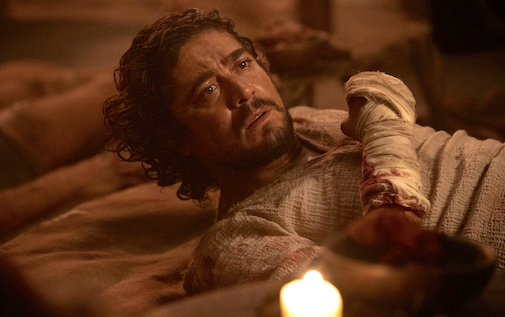by Elisa Giudici
 JEONG-SUN
JEONG-SUN
Two indie movies about how women find and lose love and an ambitious production about the life and art of Caravaggio. At the end of the day, it's one small gem followed by two disappointments...
Jeong-sun (Jeong Ji-hye, South Korea)
"Being old is a crime?" asks a friend and coworker of the titular protagonist in this intense first feature about the love life of a middle-aged factory worker in Korea. The answer is layered. Apparently being old is not a crime unless that someone takes a chance at actually being happy, even in a discrete way. Jeong-sun's age is an aggravating factor in her becoming victimized in a way that we usually associated with younger women.
When we meet Jeong-sun she's jovial, laughing and giggling with her co-workers and friends. It's extremely painful to witness her mental health destroyed when her lover makes a horrible move to prove his masculinity. With a clean, minimalist style, the director portrays Jeong-sun's radical change in attitude after a video goes viral. The movie is so delicately observed and beautifully performed by Kim Geum-soon that when Jeong-sun's desperation finally explodes, you can almost hear your heart breaking.

Ramona (Andrea Bagney, Spain)
Ramona is the victim of two movies that came before it: Frances Ha and The Worst Person in this World. It is impossible to follow the chaotic love life of Ramona, a 30-something Spanish woman, without these movies hovering. Ramona is as undecided, contradictory, and full of hope as Frances or Julie in their own films. There are times when lead actress Lourdes Hernández's facial features seem to morph right into Greta Gerwig's when watching Andrea Bagney's directorial debut. Shooting in luminous black and white is one of the many artistic choices that push this comparison. Ramona is the usual, adorable, messy protagonist who falls in love with a strange, hipster film director named Bruno. She's so confused about her feelings and her priorities that it takes two movies (the one we're watching and the film-within-the-film directed by Bruno) for her to make a clear decision about what she wants.
To be fair, Frances Ha did not exhaust all the narrative and artistic possibilities about how difficult it can be for Millenials to be less self-involved and more self-aware. The Worst Person in the World is living proof of it. There is so much to about being a young thirtysomething in romantic relationships in 2022. However, too many of the questions and answers contained in Ramona are the same as those we find in Frances Ha, a movie that was a novelty a full decade ago. Andrea Bagney creates a sophisticated indie film, but beneath the glossy artistic choices, there is too little that's original or specific to prove fully engaging. It is all too easy to call this 'the Spanish Frances Ha'. In fact, Ramona could easily be a New Yorker, given how generic the movie is about the place and the culture in which she lives.
 CARAVAGGIO'S SHADOW
CARAVAGGIO'S SHADOW
Caravaggio's Shadow (Michele Placido, Italy/France)
Michele Placido's biopic about the life and work of Michelangelo Merisi, the famous painter known as Caravaggio, should have been the perfect marriage between Italian fine art and French mainstream cinema. Caravaggio (Riccardo Scamaracio) and his controversial, dangerous life, are refashioned here to make him a kind of rock star... a rebel who loves alcohol, sex, and excess. As a painter he wants to portray the Truth of poor people in a world where the Church promotes an idealized version of JChrist and the martyrs.
No one is able to resist this destructive sexy artist. Watching two French superstars fall under his destructive spell -- Isabelle Huppert as his protector and Louis Garrell as a detective sent by the Pope to investigate the painter -- should be fun. Should be. Instead it's borderline embarrassing.
The point here is to turn a popular painter into a pop icon, transforming a period story into a superficial yet entertaining movie with extremely contemporary vibes. The problem is that Michele Placido is not the right director to do it. He fails to make the movie pop though attempts to do just that are obvious. While Riccardo Scamarcio has the physique du role to embody the tormented, sexy, masculine painter, he is not charismatic enough as a lead to sell 'famous artist as rock star' (a concept that's not so novel in literature or in movies), especially when paired with Garrel and Huppert. There is unfortunately little chemistry within the bilingual cast, everyone acting for themselves in both dialogue and sex scenes.